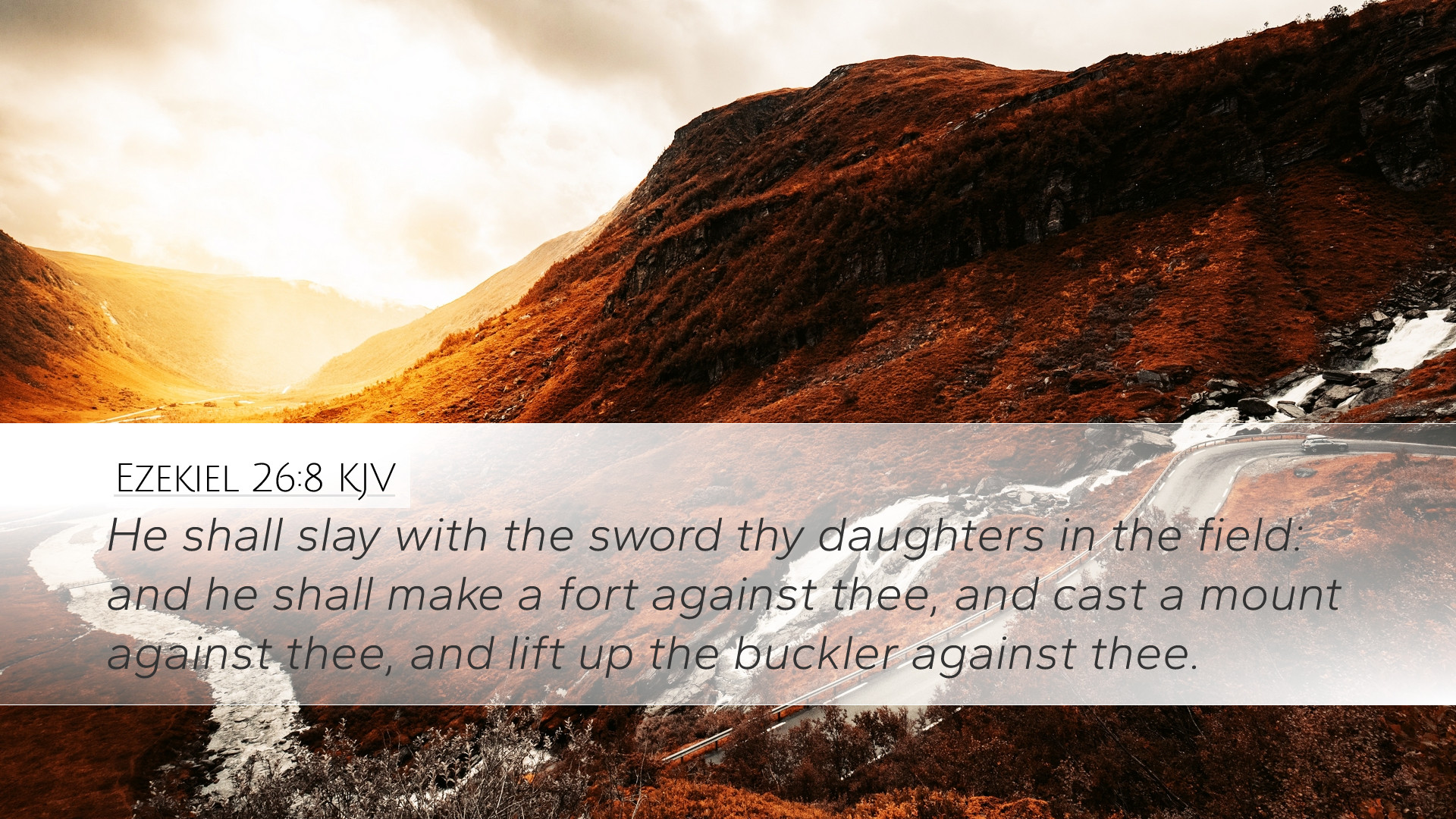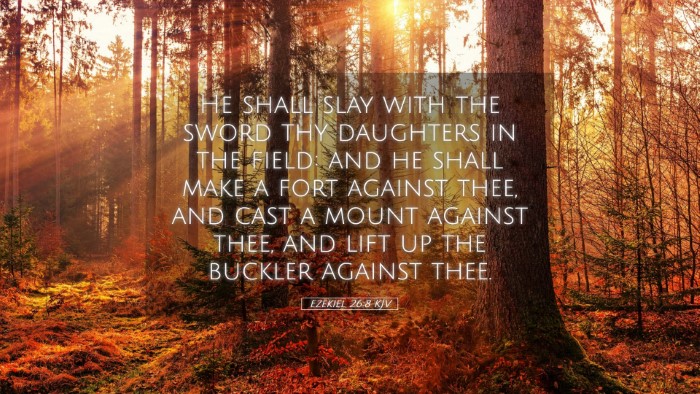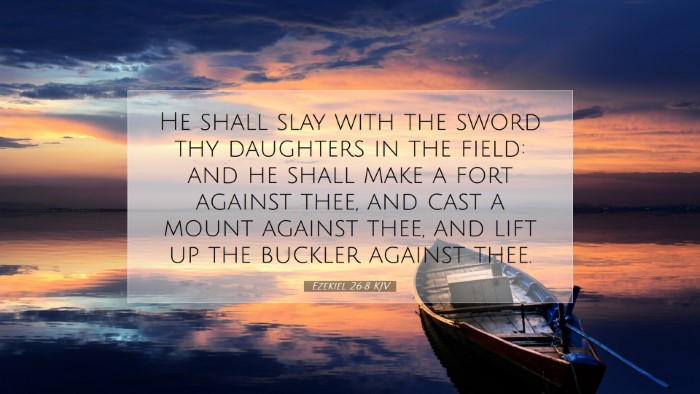Commentary on Ezekiel 26:8
Bible Verse: Ezekiel 26:8 - "He shall slay thy daughter in the field, and he shall make a fort against thee, and cast a mount against thee, and lift up the buckler against thee."
Introduction
This verse forms part of a dire prophecy against Tyre, illustrating the coming judgment upon this prosperous city. Ezekiel employs vivid imagery to convey the severity of the impending siege and the devastation that would follow. The insights from various public domain commentaries highlight the historical, theological, and practical implications of this verse.
Historical Context
To fully comprehend Ezekiel 26:8, it is essential to understand the historical backdrop of Tyre. Tyre was a wealthy and powerful Phoenician city, known for its trade and maritime prowess. The prophecy is set during a time when the city faced threats from Babylon led by Nebuchadnezzar II. This commentary draws upon Matthew Henry and Albert Barnes, who assert that the destruction of Tyre was symbolic of God's judgment on pride and self-sufficiency.
Key Themes in the Prophecy
- Divine Judgment: The verse exemplifies God's sovereignty in meting out judgment on nations that oppose Him.
- Military Siege: The mention of a fort, a mount, and a buckler signifies the systematic approach of Nebuchadnezzar's siege, denoting the inevitability of Tyre’s destruction.
- Symbolism of Daughter: The reference to slaying the "daughter" indicates the total devastation of Tyre’s inhabitants and culture.
Theological Perspectives
According to Adam Clarke, this verse encapsulates significant theological truths regarding God's judgment against nations that rebel against Him. Clarke emphasizes the metaphorical implications of Tyre representing the kingdom of the world, which will ultimately fall before divine authority.
Insights from Matthew Henry
Matthew Henry’s commentary elaborates on the idea that God uses nations as instruments of His will. In the case of Tyre, He ordained Babylon as the vehicle of judgment. Henry highlights how God’s purpose transcends human schemes, and the downfall of Tyre reflects divine retribution as a demonstration of God’s righteousness.
Albert Barnes' Analysis
Barnes notes that this verse not only serves as a warning to Tyre but also holds implications for all nations. He asserts that no earthly power can escape the judgment of God. The military metaphors illustrate that Tyre's defenses will be useless against God's decree, reminding readers of the futility of human strength without divine favor.
Practical Applications
For pastors and theologians, Ezekiel 26:8 serves as a powerful reminder of God's authority over nations. It can be used as a sermon illustration for discussing themes of repentance, humility, and the transient nature of earthly power.
Reflection for Today's Believers
- Humility Before God: This passage urges believers to maintain humility in the face of God's sovereignty.
- Dependence on God: It serves as a reminder that true strength lies in reliance upon God rather than human devices.
- Awareness of Judgment: The reality of divine judgment should inspire believers to engage in self-examination and to plead for mercy for their communities.
Conclusion
Ezekiel 26:8 stands as a stark warning against complacency and pride. It calls us to acknowledge God's justice and mercy and to prepare our hearts in obedience to His will. In combining insights from Matthew Henry, Albert Barnes, and Adam Clarke, this commentary encourages a deeper understanding of the text, invoking reflection on how it pertains to both historical context and contemporary faith practice.


